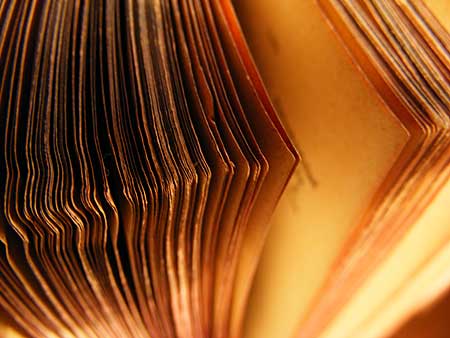Every day, we get more bad news about the people who report and write the news. A New Yorker writer gets caught in a plagiarism and fabrication scandal. ABC News apologizes for inaccurately reporting that the Colorado movie theater shooter may have been a Tea Party member. A survey finds “broad-based declines” in believability ratings for top U.S. news outfits.
It’s easy to forget the hard and essential work that journalists do, often battling roadblocks from within their own newsrooms as well as threats and lies from powerful institutions that want to keep secrets under wraps.
Whenever I get discouraged about the business I work in, I turn to my favorite books about journalists who struggled to overcome these obstacles and expose all manner of bullies, charlatans, grafters and kleptocrats.
A few examples:
 Once Upon a Distant War (1995) by William Prochnau. Epic tale of three young war correspondents – David Halberstam, Neil Sheehan and Peter Arnett – who fought to report hard truths about the early days of America’s involvement in Vietnam.
Once Upon a Distant War (1995) by William Prochnau. Epic tale of three young war correspondents – David Halberstam, Neil Sheehan and Peter Arnett – who fought to report hard truths about the early days of America’s involvement in Vietnam.
Throughout their tours of duty, the trio faced open hostility from U.S. officials and assassination threats and wiretapping by South Vietnamese intelligence agents. Sheehan once fooled military censors by tapping out a 25-word coded message that his editors at United Press International were able to translate into a 600-word scoop. In another instance, Arnett clamped a story between his teeth and swam across the Mekong River to find a place where he could transmit the news back home.
 Scandals, Scamps and Scoundrels: The Casebook of an Investigative Reporter (1982) by James Phelan. Page-turning memoir of one of the great magazine journalists of the 1950s, ‘60s and ‘70s.
Scandals, Scamps and Scoundrels: The Casebook of an Investigative Reporter (1982) by James Phelan. Page-turning memoir of one of the great magazine journalists of the 1950s, ‘60s and ‘70s.
Phelan was adept at unmasking manipulators and swindlers. He took down Jim Garrison, the flaky New Orleans district attorney who claimed – based on his own evidence-free conspiracy theories – that he had “solved” the Kennedy assassination. Phelan also connected the dots on how Howard Hughes secretly funneled cash to Richard Nixon’s ne’er-do-well brother Donald (who dreamed of starting a “Nixonburgers” fast-food chain). And he exposed a California con artist who ripped off thousands of people who visited his chain of chiropractic clinics, addressing heart problems, chest pains and other ailments with a simple cure-all: enemas.
Phelan went undercover on the chiropractor story, by the way, posing as a patient and getting the full treatment. “It was a weird story, but I knew it was true,” Phelan’s editor on the piece later joked. “When he came in with the manuscript, he gurgled when he walked.”
 Poison Penmanship: The Gentle Art of Muckraking (1979) by Jessica Mitford.
Poison Penmanship: The Gentle Art of Muckraking (1979) by Jessica Mitford.
An anthology of articles by the British-born writer/activist who earned the title “Queen of the Muckrakers” thanks to her investigations of the funeral industry, correspondence schools and other corners of American life. “You may not be able to change the world,” she liked to say, “but at least you can embarrass the guilty.”
See especially the chapter titled “Let Us Now Appraise Famous Writers.”
 The Investigative Journalist: Folk Heroes of a New Era (1976) by James Dygert. Inspiring bios of dozens of investigative reporters.
The Investigative Journalist: Folk Heroes of a New Era (1976) by James Dygert. Inspiring bios of dozens of investigative reporters.
Among my favorites: Jack White, a construction worker and tugboat captain turned Providence Journal reporter. His sleuthing forced a Congressional investigation of dubious income tax deductions claimed by President Nixon.
Another standout: Miriam Ottenberg, a Washington Star reporter who went undercover in the 1950s to write a Pulitzer Prize-winning series, “Used Car Buyer Beware.” She followed with a string of other exposes “Homeowner Beware,” “Investor Beware” and “Debtor Beware” – earning a name for herself around the nation’s capital as the “Beware Girl.” “A reporter,” she once said, “should expose the bad and campaign for the good. That’s how I was brought up.”
Investigative Reporting: From Courthouse to White House (1981) by Clark R. Mollenhoff. Professional memoir of a bulldog reporter who combined old-style muckraking with the expertise of a lawyer (he earned his law degree while moonlighting as a cub reporter at the Des Moines Register).
I first read this book in the early 1980s when Mollenhoff was one of my professors at Washington and Lee University. The prose isn’t scintillating, but the stories behind his stories are fascinating – including his brief kidnapping by small-time mobsters in Iowa and his press conference showdowns with President Eisenhower in Washington.
Jimmy Hoffa tried to get Mollenhoff to stop investigating Teamster frauds with a straight-forward offer of a bribe: “Now look here, Clark. They don’t pay newspaper reporters enough to be giving me the bad time you’re giving me. Everyone has his price. What’s yours?”
“Jimmy, you don’t have enough money,” Mollenhoff replied. “Let’s get on with the interview.”
Your turn: What are your favorite books about great investigative reporters?
—
This list is adapted from similar lists I put together for Huffington Post and Nieman Watchdog. Check out those versions to see other examples of journalism biographies and memoirs worth reading.
Michael Hudson is a senior editor at ICIJ and author of THE MONSTER: How a Gang of Predatory Lenders and Wall Street Bankers Fleeced America—and Spawned a Global Crisis
![]() Subscribe to The ICIJ Global Muckraker by email or get the RSS feed
Subscribe to The ICIJ Global Muckraker by email or get the RSS feed
